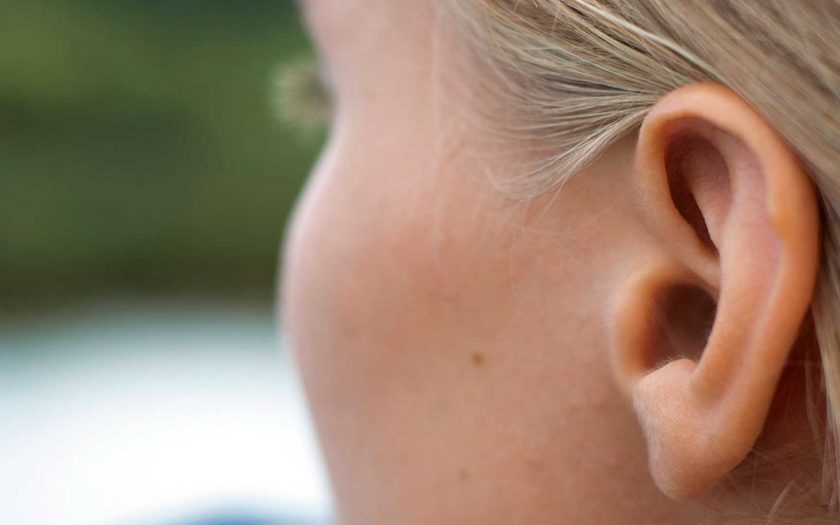Inflammation in the ear occurs for two reasons:
- hypothermia;
- bacterial infection.
Consider the symptoms of otitis media:
- soreness when touching the auricle;
- redness and irritation of the ear canal;
- pain when pressing on the tragus;
- discomfort when yawning, swallowing, talking.
In addition, if hearing deteriorates, it means that the inflammation has spread to the eardrum.
Let us consider in more detail what reasons can provoke the development of the disease.
-
Temperature.
There is a misconception that you can catch a cold only if it is -5°F outside and you swam in ice water. In fact, you can get sick even if the air temperature is + 90°F and the water temperature are + 70°F. Temperature differences are also dangerous, even if the air is colder than water. Consequently, the immunity is reduced, including local, and this is a condition for the development of otitis.
-
Warm and cold.
If we go into a room where the air conditioner is running at full capacity, or walk with wet hair after bathing, it can also lead to hypothermia and, as a consequence, inflammation in the ear.
-
Microbes in water.
Any water in which a person swims for the first time can be a source of infection. After all, the microflora that lives there is unknown to the body, protection against it has not yet developed, and, therefore, there is a greater chance of getting sick than when swimming in a familiar pond or river. In addition, there are many bacteria in the sea that easily get into the ear. To avoid infection, follow these rules:
- when swimming, do not make sharp turns of your head under water;
- dive with your mouth closed;
- do not swim in muddy water – it contains a suspension of bacteria and sand, which will make it easier for them to travel to your ears;
- thoroughly wet your ears with a towel after swimming.
-
Nose health.
Hypothermia and infection are also the main causes of nose problems. Hypothermia often develops nasal edema, which can spread to the mucous membrane of the auditory tube. The lumen of the ear canal closes, there is an inflammatory process and otitis media develops. As for the nose, edema can develop frontitis, sinusitis or ethmoiditis. These diseases are quite severe and are treated for a long time, even with good drugs (such as Augmentin, Baytril or Cipflox).
-
Protect your ears.
The easiest way to protect your ears is to avoid direct contact with water. Wear a swimming cap. Use a pharmacy-bought silicone earplug. Alternatively, make your own earplugs. On the beach, remove and discard earplugs, and put on new ones before swimming again.
-
Get rid of water in the ears.
Pull the auricle back and slightly up. Make a few chewing or yawning movements – the skin will begin to move and the water will come out more easily. Jump on one leg, tilting your head to your shoulder.

